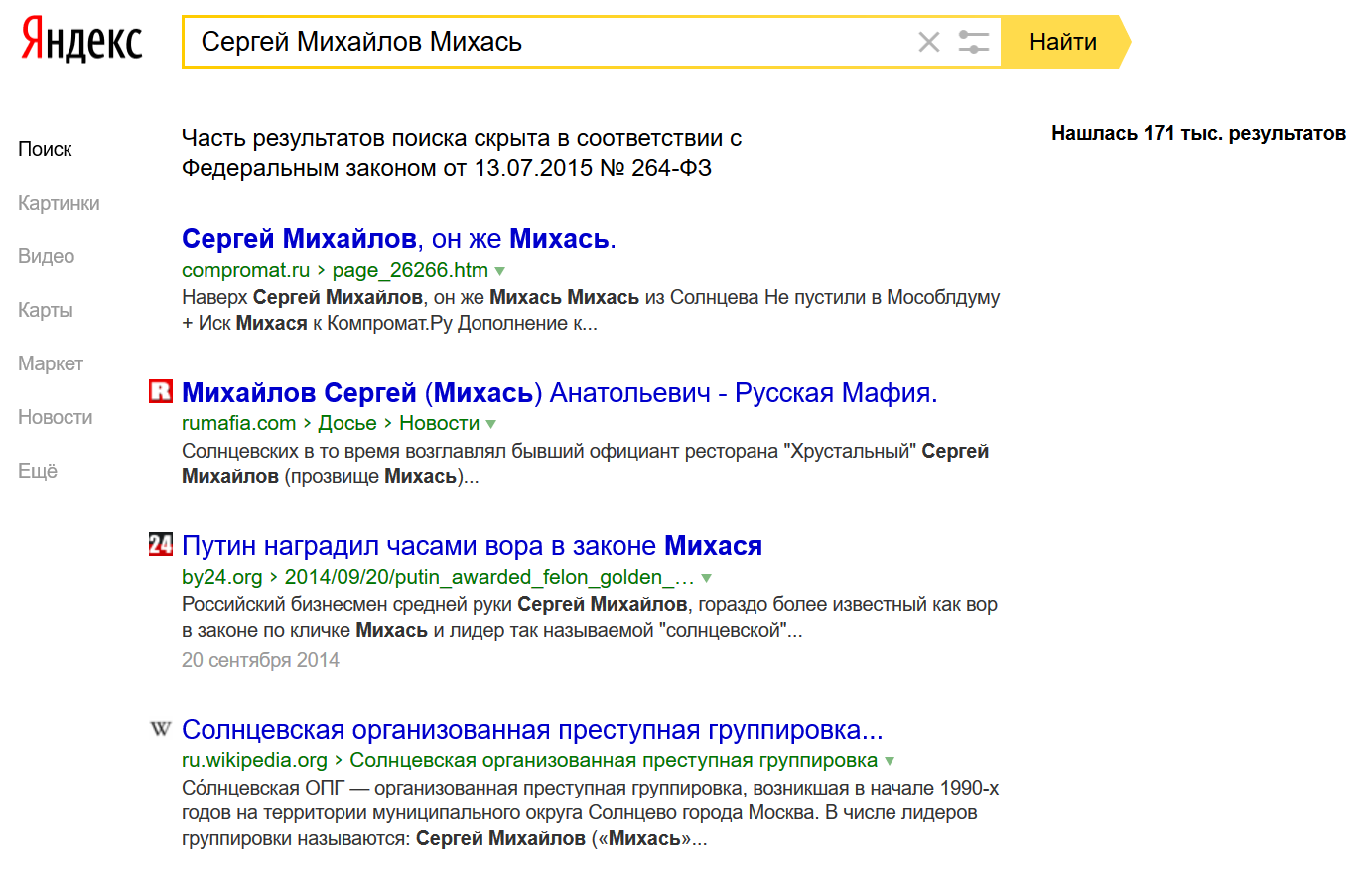Authority Mihas used the “right to oblivion” and deleted his past from search engines
Editing reality earned in Russia
 The publication of RBC informs about one more case when the search engines of Russia applied the law on the “right to oblivion” and censored search results. This case is especially interesting.
The publication of RBC informs about one more case when the search engines of Russia applied the law on the “right to oblivion” and censored search results. This case is especially interesting. The opportunity to “edit the reality” was used by businessman Sergey Mikhailov, known by the nickname Mihas, whom the media called the leader of the Solntsevo group . By law, any user can remove from the search results links to unreliable or outdated information. In this case, the information is outdated, so the businessman decided to clean up the past. The law gives everyone the right to do so.
The search engines Yandex and Google have limited the issue of results for the requests "Sergey Mikhaylov Mikhas", "Sergey Mikhailov Mikhas Solntsevo", "Sergey Mikhailov Solntsevo" and a number of similar formulations. For users with Russian IP addresses, a notification is displayed that part of the search results are hidden in accordance with federal law No. 264-ФЗ of July 13, 2015.

The official website of Sergei Mikhailov does not mention his participation in criminal gangs. Here Sergei Mikhailovich is called the "famous patron of the arts."
The amendments on censorship of search results in the draft law “On Information, Information Technologies and on Information Protection” were adopted in 2015 . In the event that the search engine refuses to censor the law, a penalty of up to 1 million rubles is imposed on it .
At one time, Yandex and Google expressed themselves against the adoption of the bill. Specialists of the Russian company prepared an opinion in which they made several comments:
- The bill violates the constitutional right of citizens to seek and receive information. If the bill is adopted, the search for a large array of socially significant and reliable information will be difficult.
- The draft law lays down on search engine operators, which are commercial organizations, inappropriate functions.
- The technical implementation of the bill is impossible, since the bill does not take into account the technical features of the dissemination of information on the Internet and the functioning of search engines.
- The bill opens up opportunities for abuse, including to fight competitors.
- Definitions that are used in the bill are incorrect.
- The proposed concept and wording of the draft law differs significantly from European law enforcement practice.
The amendments entered into force on January 1, 2016.
During January-March 2016, according to "Yandex" statistics, received 3.6 thousand. Requests from nearly 1.4 thousand. Man. The majority of requests (51%) concerned the removal of references to reliable information. Fully satisfied 27% of requests.
Google has been implementing such a law in the European Union since 2014, and in Russia in the first months received almost 1.5 thousand requests for the removal of 6.4 thousand URLs. 26.2% of them are satisfied.
